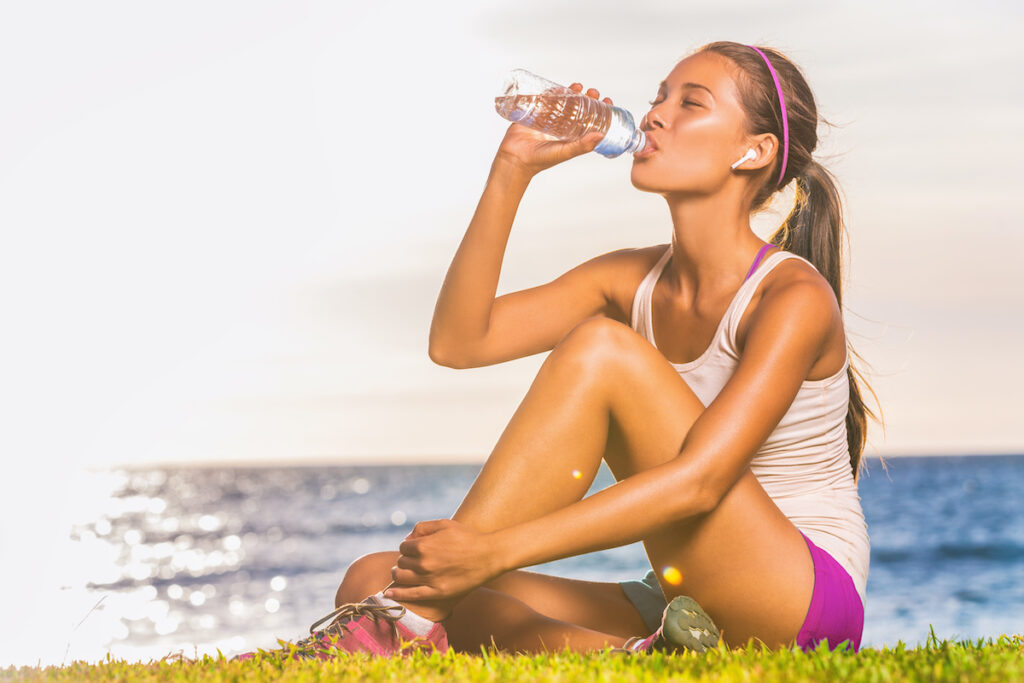For athletes and fitness enthusiasts, staying hydrated is crucial to performance and recovery from heavy training, maintenance and repair after an injury, and many other bodily functions that keep your body healthy and in shape.
Add the hot Florida weather to a summer workout or a day at Honeymoon Island and hydration isn’t just important—it could save your life.
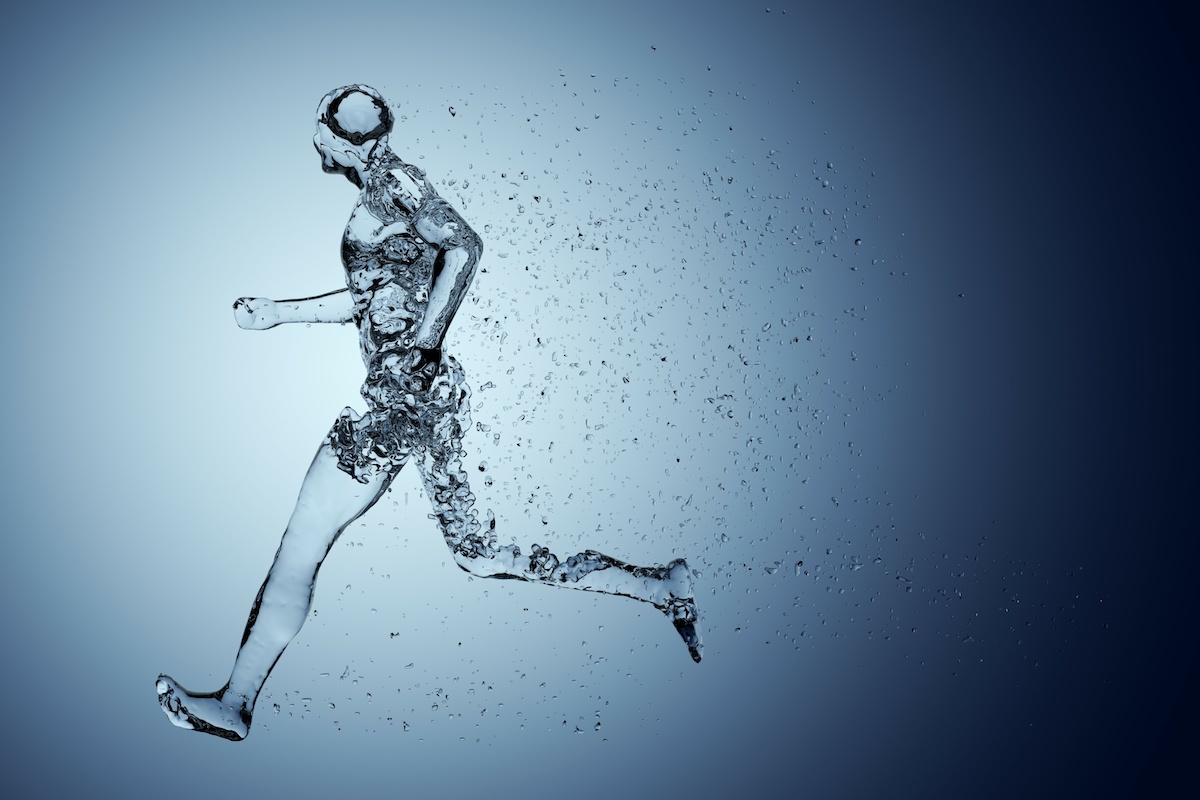 With 65% – 70% of the body’s weight being water—with variations for age and gender—water is essential to every cell in the body, and not just for breaking a sweat.
With 65% – 70% of the body’s weight being water—with variations for age and gender—water is essential to every cell in the body, and not just for breaking a sweat.
In the body, water helps to …
- regulate thirst and appetite
- transport nutrients in the bloodstream and the cells
- remove waste products rom the body (through sweat, urination, bowels)
- maintain normal body temperature through sweating and respiration
- facilitate muscle contraction
- maintain good muscle tone
- regulate electrolyte balance
- lubricate and reduce friction in the joints
- maintain pH balance
- nourish the skin
- facilitate digestion
Each vital organ (heart, brain, lungs, liver, kidneys, etc.) consists of between 70% and 95% water. Being even “a little bit” dehydrated can interfere with the optimal function of these organs.
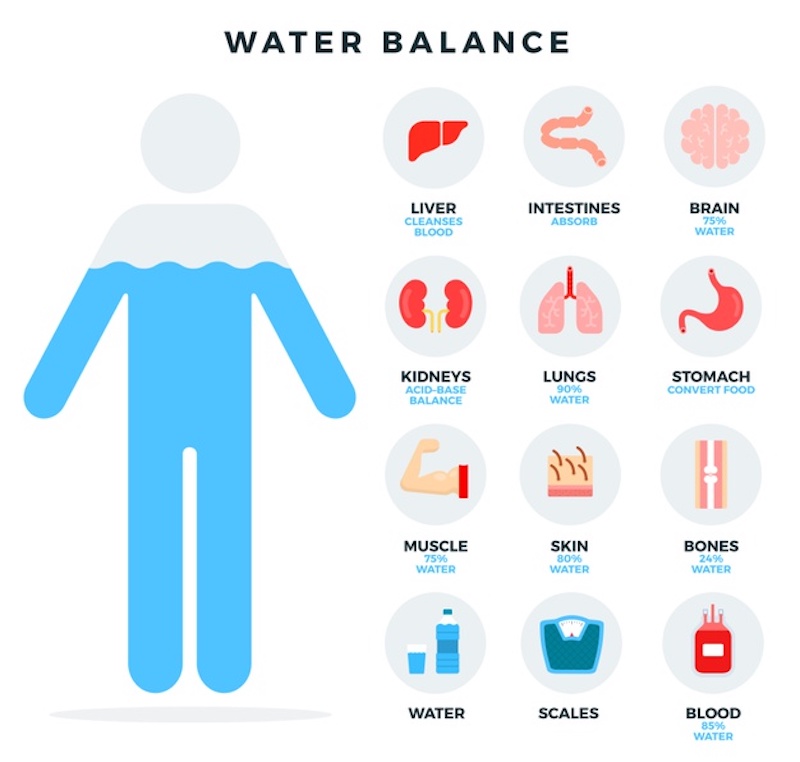
When it comes to fitness, athletic performance and recovery, your ability to stay hydrated plays a crucial role protecting your body as it exerts maximum effort. Hydration supports the process of flushing out waste products from a hard workout, so you can recover with less soreness and be less prone to injuries and health problems such as:
Cramps. Muscle cramps result from imbalances in electrolytes that are not being delivered as needed for muscle contraction.
Cartilage Damage. Cartilage wear and tear occurs because the joints aren’t getting the nutrients that help cartilage repair itself when it’s stressed. Cartilage is made of collagen, proteins, cells, synovial fluid, and water. Insufficient hydration can lead to wear and tear on your cartilage that outpaces the body’s ability to generate the components that form new cells.
Joint Damage. Water helps maintain the viscosity needed to cushion bones as they bear weight. “Dehydrated joints” can’t maintain cushion, which can lead to achy or “creaking” joints and osteoarthritis (OA).
Pain and Strain. Dehydrated muscle tissue can’t flush out waste products or toxins that build up from exertion, injury or other stress. Muscles that are under unnecessary stress are more prone to strains, sprains, tears, and bruising.
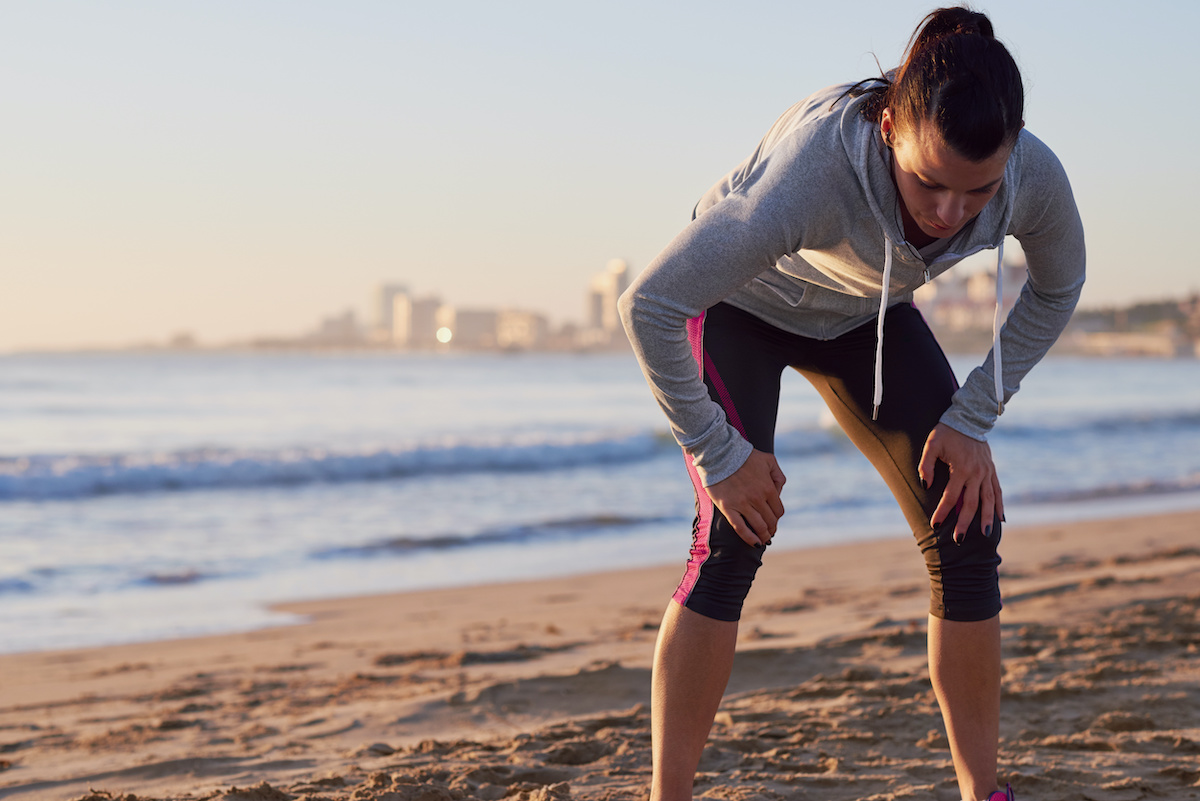 Are You Dehydrated?
Are You Dehydrated?
Dehydration means your body lacks the water required to function. You can become dehydrated if you don’t replace fluids lost through exercise, exposure to the elements, or from vomiting/diarrhea. Very quickly, dehydration can become a life-threatening emergency.
Signs of dehydration
Mild Dehydration (aka Inadequate Hydration):dry mouth, irritability, headaches and muscle cramps. You may feel mildly constipated as the body struggles to eliminate waste products.
Moderate Dehydration: dizziness, clumsy, exhausted, racing heartbeat. You may be unable to urinate, to stand, or focus your eyes.
Severe Dehydration: the vital organs begin to shut down. Without water, you will enter a coma and die.
Remember: Dehydration progresses pretty quickly. Don’t ignore the early warning signs!
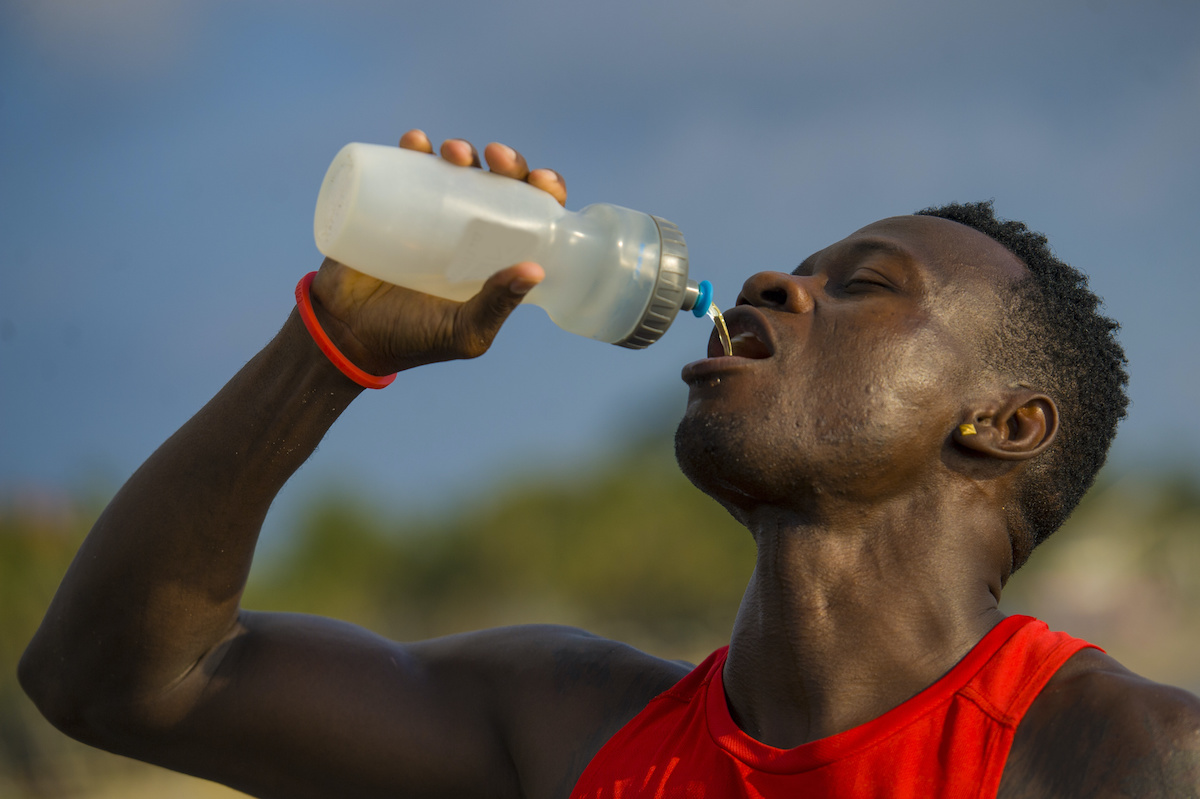 How Much Water do I Need to Maintain Hydration?
How Much Water do I Need to Maintain Hydration?
You may have heard that you can determine if you are getting enough water by looking at the color of your urine. The problem with this method is that certain foods, supplements, and medications change urine color. As a result , the color of your urine is not a reliable guide for how well you are hydrated.
Estimate Your Daily Water Requirement
Here’s a surprise:You’ve heard of the8x8 rule (8 cups x 8 oz) for how much water to drink each day—it’s more nutrition and fitness myth than science. The best estimate of your daily water requirement is your body weight:
- Drink one-half (½) your body weight in ounces.
Example: If you weigh 130 pounds, drink 65 ounces of water each day.
Likewise, your sensation of thirst is NOT a sufficient way to determine your need for water. By the time you sense thirst, your body is already mildly dehydrated.
Remember: A person’s daily needs vary depending on age, gender, activity level, body composition, health status, and climate.
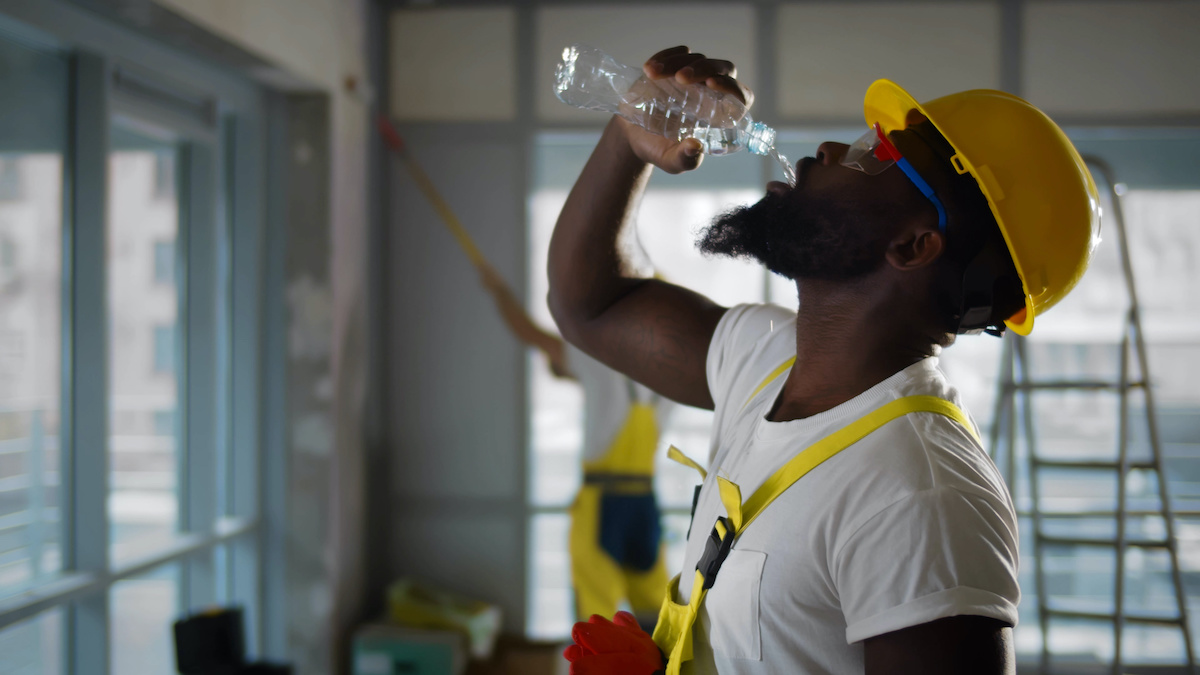
Your body needs more water if you:
- live in a hot, dry; hot, humid climate
- live at high altitude
- work outdoors
- exercise vigorously
- have a physically demanding job (indoors or outdoors)
- are pregnant or breastfeeding
- are injured
- are experiencing illness symptoms such as vomiting, diarrhea
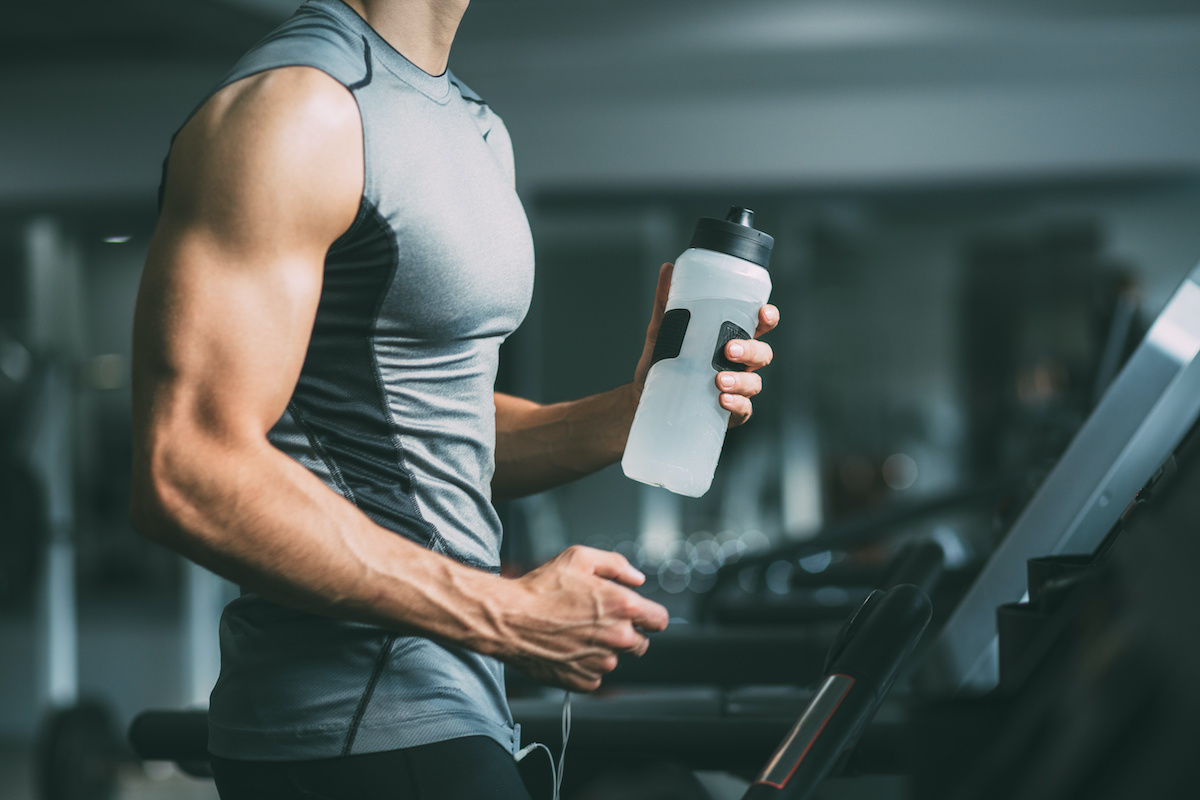
Do I need an Electrolyte Replacement Drink?
The short answer is most people do not need an electrolyte replacement drink. It’s actually quite difficult for the average athlete to drain their electrolyte stores. You’d be much better off drinking green tea than spending money on electrolyte replacement products, unless:
- you are rehydrating after intense training or competition in the heat
- you are preparing for a major sport event (start hydrating 1-2 days before),
- you are preventing or recovering from dehydration caused by illness or injury
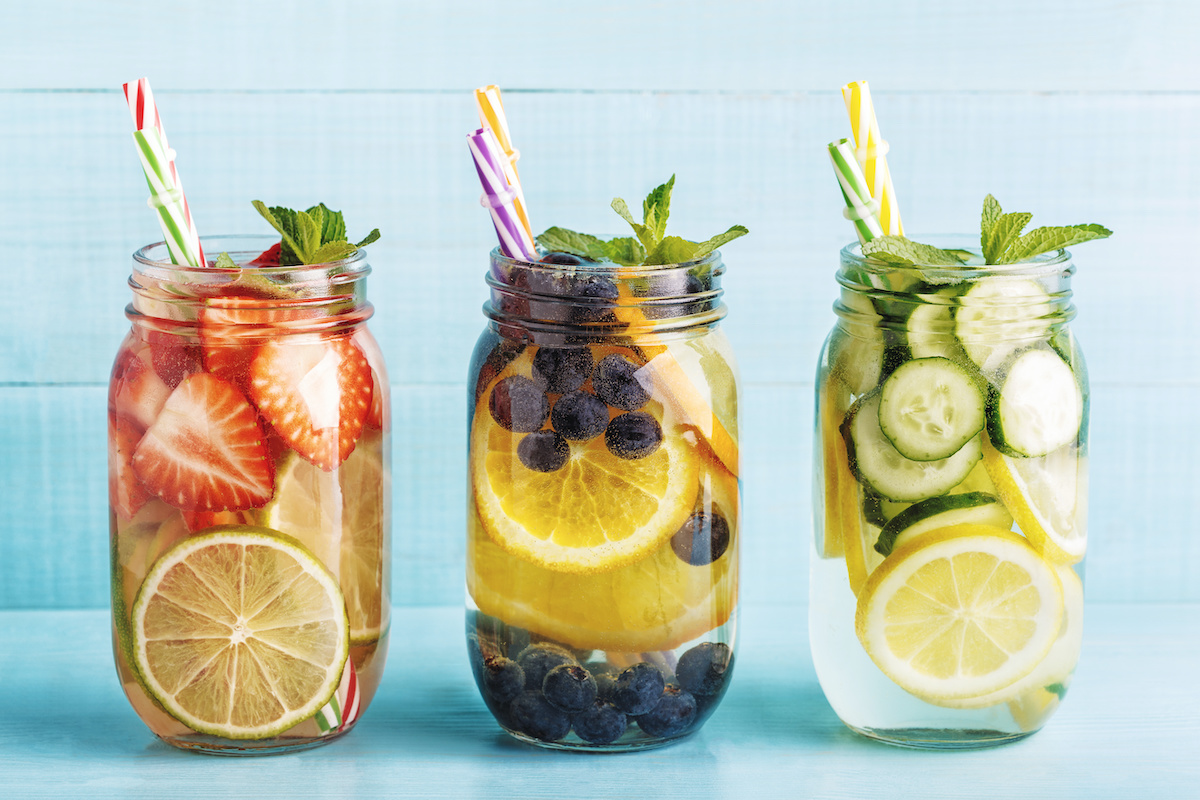
Sweet Ways to Get Hydrated
Living in Dunedin and surrounding towns of Pinellas County, Florida, you need to drink often throughout the day. If you struggle to drink pure H20, consider these tips to help you stay hydrated throughout the day:
- Go Coconut.Coconut water is rich in natural electrolytes. While not scientifically proven, theoretically it can boost hydration and you may enjoy the flavor more than plain water.
- Try a Fruity Twist. Add fresh or frozen slices of orange, lemon, or lime to your water. Frozen berries also make for a beautiful and delicately sweetened glass of water.
- Get Fizzy. Bubbly (carbonated) spring water hits the spot on a hot day. Look for varieties that do not have added sweetener. You can make your own “virgin sangria” by pouring carbonated water over frozen fruit and ice.
- Have an Herbal. Caffeine free tea, such as herbals can count toward your daily water intake. Iced or hot, the flavor and extra nutrients from green teas support healthy hydration.
- Fruit & Veg Up! Many fruits and veggies have a high water and nutrient content, which is a great combination for hydrating: cantaloupe, honeydew, strawberries, watermelon, pineapple, peaches, cucumber, lettuce and celery.
- Fresh, Frozen Fruit.Grapes, pineapple, berries, kiwi and many other fruits are excellent choices for frozen delights. You can enjoy frozen fruit as is, or blend it into smoothies or a frozen dessert.
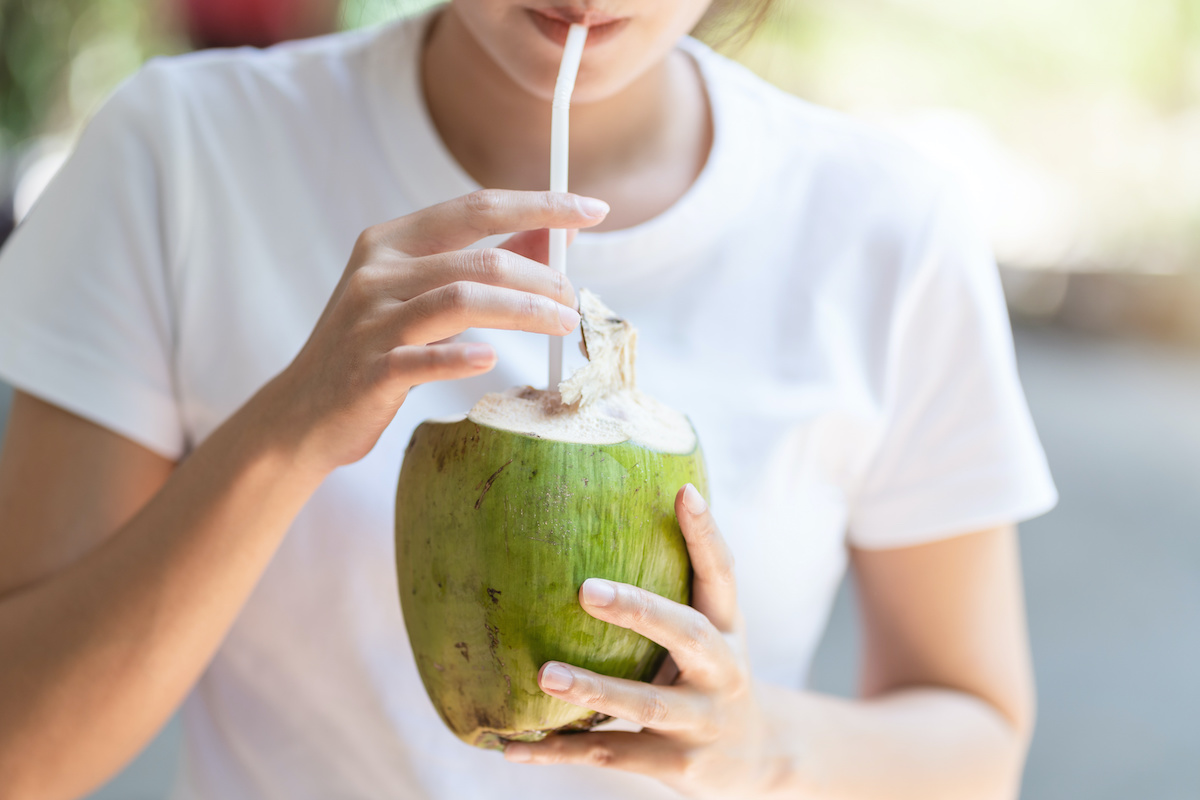
If you need to add a sweetener, choose natural sweetener such as local Florida honey, unsweetened liquified coconut, or agave rather than processed granular sugar.
Remember: Coffee, fruit juice, and caffeinated, sugary sports drinks do not contribute to hydration.
Want more ideas for how to stay hydrated to support a healthy body and a great workout?Contact our certified sports nutritionist at Generation Fit. You also can call us at 813-340-3008.
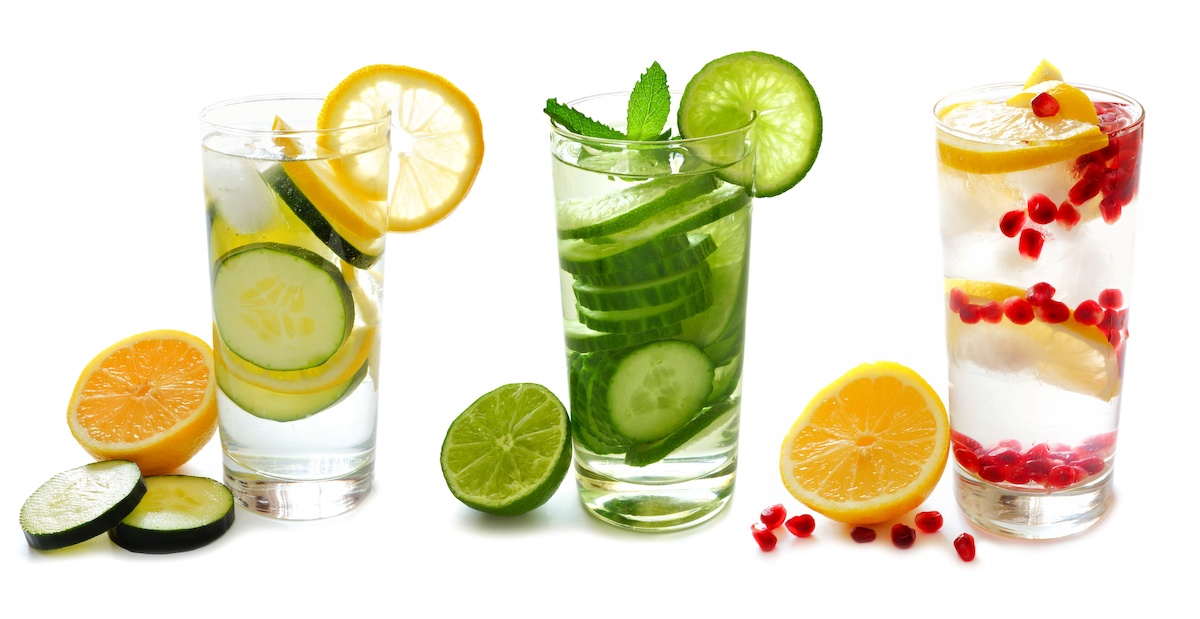
Homemade Electrolyte Replacement Drink
It’s easy to make your own electrolyte replacement drink —one that will have far greater benefits, less sugar and additives than anything sold in stores.
Ingredients
- 16 ounces filtered water
- 1 large or two small oranges
- 1 lemon
- ⅓ tsp Celtic sea salt
- 1 tsp liquid trace minerals
- 1 T raw honey (use maple syrup for children under 12 months of age)
Instructions
- Juice the orange and the lemon.
- Mix the fresh juices with the sea salt, honey (maple syrup), and optional trace minerals.
- Blend the juice mixture with filtered water in a tall glass.
- Serve electrolyte replacement at room temperature, NOT cold as this inhibits absorption.
- Sip and drink half within about one hour of exertion. Consume the rest as needed.
Refrigerate remainder of juice. Use within 2-3 days.
Resources
Hydration: Why it Matters for Preventing Injuries
Popkin, Barry M., Kristen E. D’Anci, and Irwin H. Rosenberg. “Water, Hydration and Health.” Nutrition reviews 68.8 (2010): 439–458. PMC.
Jequier E, Constant F. “Water as an essential nutrient: the physiological basis of hydration.” Eur J Clin Nutr. (2010) 64:115–123.
Murray, B. “Hydration and Physical Performance.” J Amer Coll of Nutrition (2007 Oct 26) [5 Suppl] 542S-548S.
Heinz V., ““Drink at least eight glasses of water a day.” Really? Is there scientific evidence for “8 × 8”?” Amer J Physio – Regulatory, Integrative and Comparative Physiology (1 November 2002). 283:5, R993-R1004
Long, M. “Sports Performance and Nutrition: A comprehensive guide.” Naturopathic Currents. (2015 April – Web).
Mayo Clinic. “Factors that influence water needs.”
SFGate.com “Why do we need to drink water?”
Centers for Disease Control. “Plain water, the healthier choice.”
McIntosh, J. “Why is drinking water important?” (Posted 4 Oct 2016)
The Rubik’s Cube is the most popular puzzle on the World. Learn how to solve it with the easiest method.

